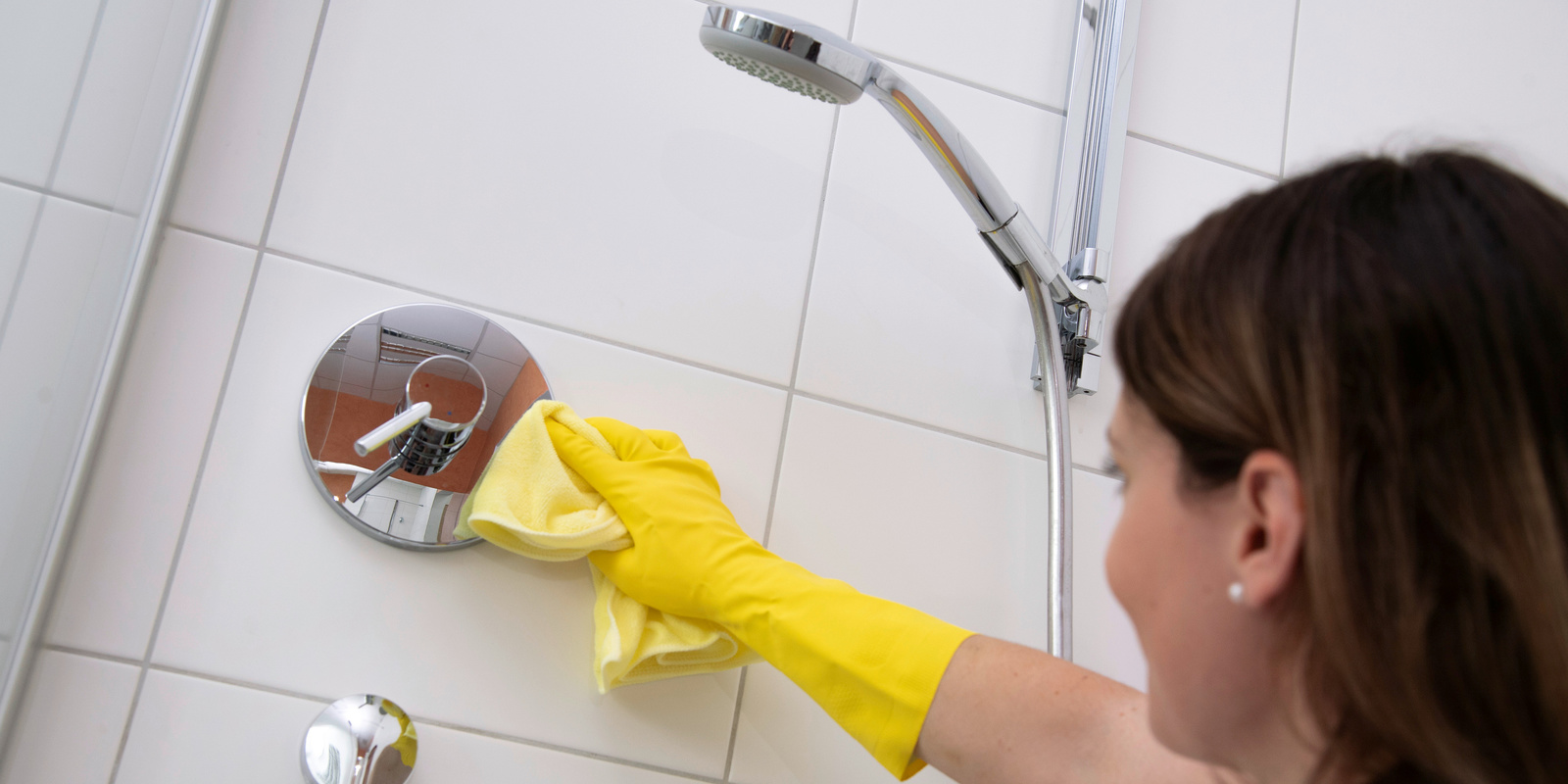Cleaning drains without chemicals
Is the water not draining well in your shower or bathtub? Is there an unpleasant odor coming from your kitchen sink? You need to act quickly. However, if a drain in your home is blocked, you don't have to immediately resort to the pipe cleaner. These tips and household remedies will help you to clean the blocked drain without harming the environment, and to prevent new blockages.

Cleaning drains: What really works
Grease and food residues in the kitchen, as well as soap, skin care products and hair in the bathroom: every day, material flows through the drains which, over time, forms deposits in the pipes. If you do not regularly remove these deposits, they eventually form a blockage and water can no longer drain away.
The shops are full of granules, gels and power foams that claim to help you clear your drains in no time. However, in the end, these chemical cleaners often only have one effect: the drain becomes permanently clogged. However, if the drain in the washbasin or sink is clogged, you don't have to immediately reach for the drain-cleaner – many tried-and-tested household remedies also help you to clean blocked drains and pipes.

Cleaning drains with household remedies
Commercially available drain cleaners are often aggressive and are harmful to the environment and to health. If the drainpipe is not completely blocked and the water can therefore still drain away slowly, in addition to using a steam cleaner, natural household remedies are also an environmentally safe alternative for removing the deposits. These are the most effective household remedies:
- Vinegar and baking powder: Pour 4 tablespoons of baking powder into the blocked drainpipe and immediately flush this with half a cup of vinegar essence. The two agents trigger a chemical reaction and they start to fizz. As soon as the fizzing noise stops, flush the pipe with boiling water in order to completely clean the drain.
- Vinegar combined with bicarbonate of soda or washing soda: Bicarbonate of soda or a washing soda like Borax® can be used as an alternative to baking powder. Pour four tablespoons of washing soda or bicarbonate of soda into the drain, then pour in half a cup of vinegar essence and, after a short time (when you can no longer hear any fizzing sound), flush with hot water.
Cleaning drains with a steam cleaner
A steam cleaner is also particularly suitable for cleaning drains. Using the combination of a jet of steam and high temperature, even stubborn and greasy dirt is dissolved and removed in a matter of seconds. The steam also gets into hard-to-reach corners. This loosens light blockages, and also gets rid of unpleasant odors.
What to do:
- Hold the detail nozzle (power nozzle) at the drain and release the steam. While doing this, hold a microfiber cloth over the drain in order to protect yourself against any dirt that sprays back.
- Ensure that you do not steam the plastic parts underneath the sink strainer directly while cleaning, as these may be damaged by excessively high temperatures.

Tip
Drains in kitchens and bathrooms should be regularly cleared using steam. This prevents deposits and unpleasant odors from forming. You can also use the detail nozzle to easily clean the overflow on the washbasin or sink.

If nothing else is working: plunger and flexible coil
The blockage is often located in the siphon, i.e. the U-bend below the drain.
In the event of particularly stubborn blockages in the drain, we therefore recommend that you use a plunger to help you. The continuously changing pressure that is created by the plunger loosens the dirt caused by hair, grease or food residues.
To do this, hold the plunger in the center above the drain and push it firmly downwards against the washbasin or sink. Let water run in the sink until the plunger is completely covered and then move the plunger back and forth without completely lifting it out of the water.
After doing this a few times, test whether water is again running through the drain. If not, repeat the process until the drain is clear.
Other mechanical means for clearing blockages are cleaning cables or drain brushes and/or flexible coils. In many cases, it is also relatively easy to remove the siphon and clean it separately.
Preventing drain blockages
Adding just a few tasks to your daily routine can help you to prevent stubborn blockages in the bathroom and kitchen. These tips help you to prevent blocked drains in your home:
- Regular flushing with boiling water: small deposits in the drainpipe are flushed away and the drain is therefore kept permanently clear.
- Do not put food residues down the kitchen drain.
- Protect the drains in the washbasin, shower and bathtub using a hair trap.
- Include the drains in your cleaning routine: If you are already using the steam cleaner in the kitchen and bathroom, you can also quickly clear the drains using steam. This saves you from having to carry out time-consuming cleaning at a later point.






